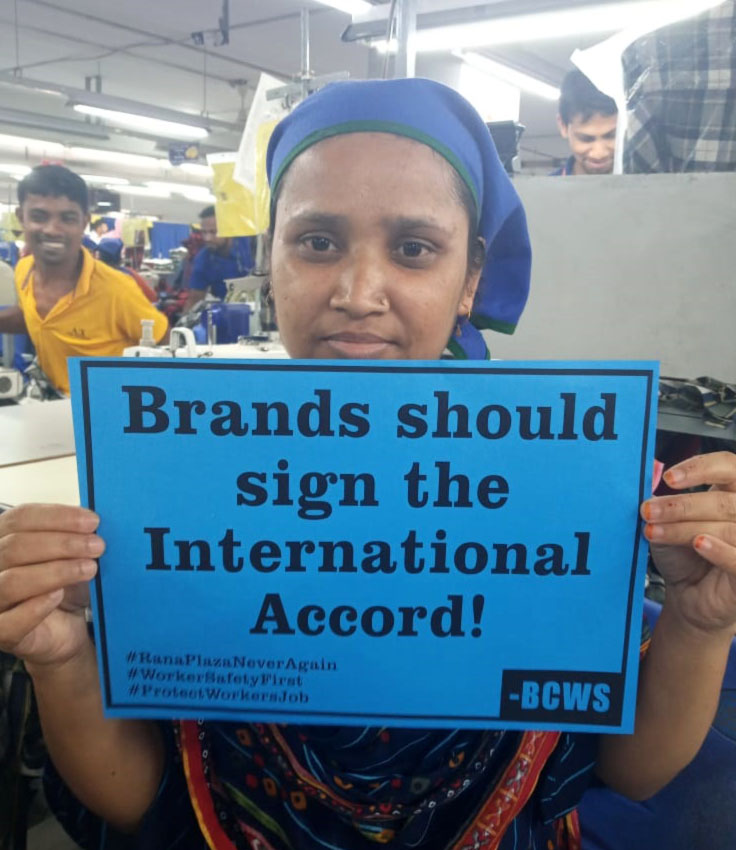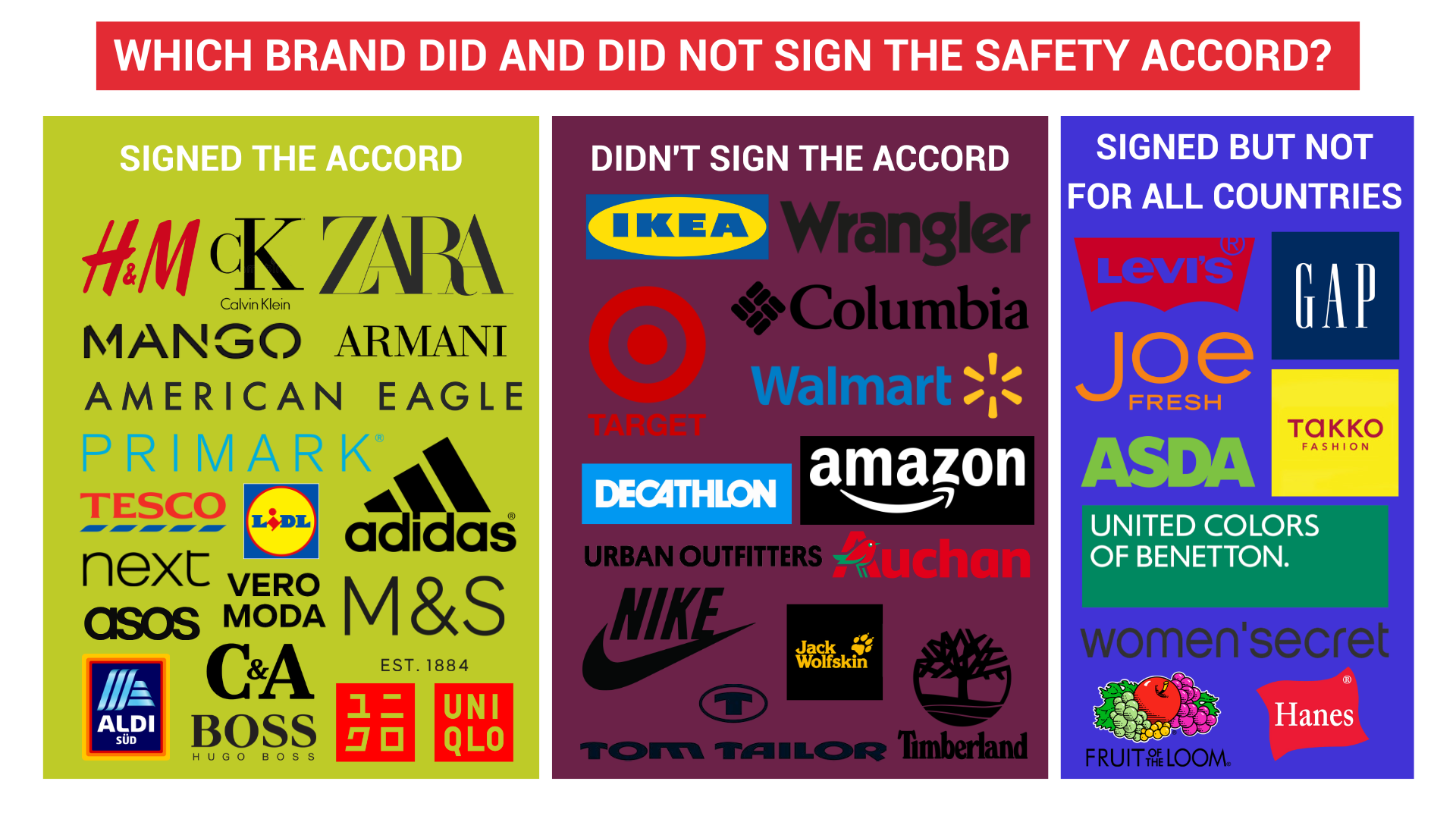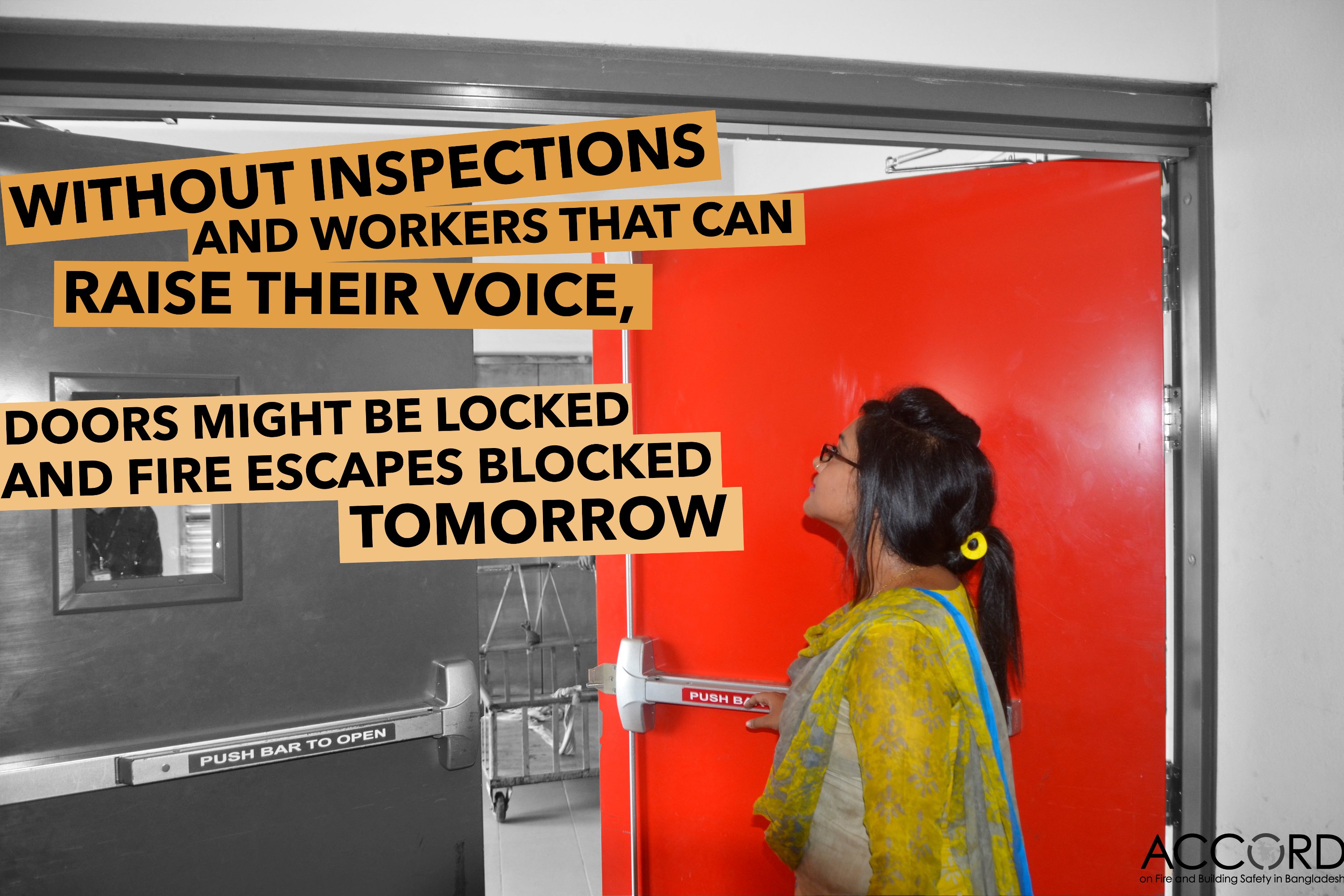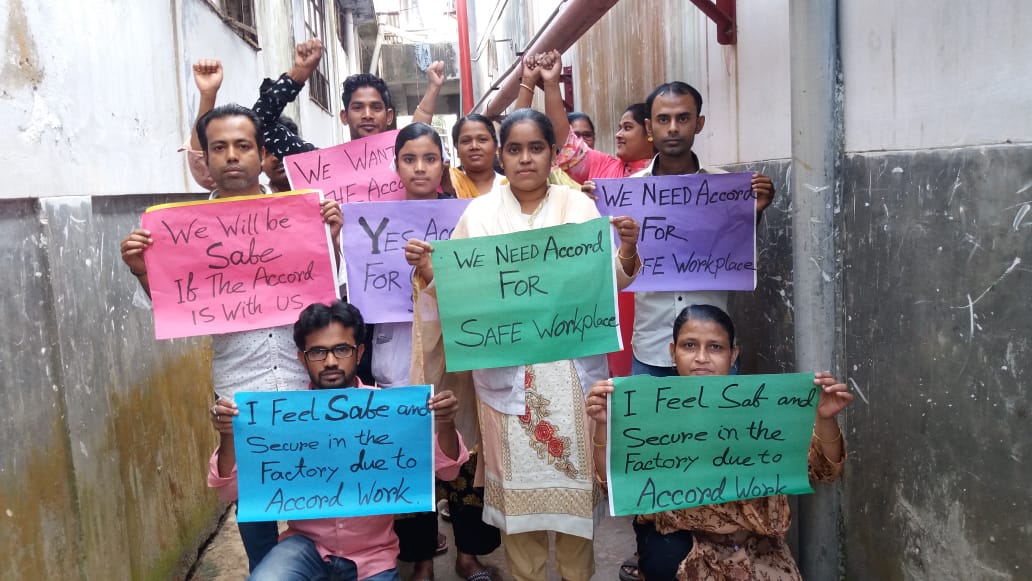In 2013, the Rana Plaza building collapsed, killing 1,138 workers. CCC's proposal for a binding safety agreement to address the deadly factories in Bangladesh had long been on the table. Following the collapse, brands could no longer ignore the issue, and a few weeks later, the Bangladesh Safety Accord was launched. Over the past few years, the Accord has made factories safer for more than 2.5 million workers in Bangladesh and Pakistan.
The Accord succeeds where voluntary programmes failed because it holds brands, retailers, and factories accountable for not taking sufficient action. Unions take up half of the seats in the International Accord's governance structure and can hold brands accountable. Clean Clothes Campaign is one of the four witness signatories. The International Labour Organisation functions as a neutral chair.
The Accord requires brands that have signed up to disclose their supplier factories and ensure independent building inspections for fire, electrical, and structural safety, as well as worker rights training and a review of safety standards.
The first Accord ran for five years, ending in May 2018. At that time, the Bangladeshi government and the employers’ organisation stated that they no longer needed the Accord. Yet, as stressed by CCC, there was no other effective way to keep workers in Bangladesh safe. A closer look at the public data of the national inspection bodies themselves showed many inconsistencies and dangerous lapses.
Thus, many worker representatives, brands and other stakeholders joined us in our support for the continuation of the Accord. In 2018, a new Transition Accord started.
In 2019, following a court case brought by a disgruntled factory owner that threatened the continuation of the Transition Accord, the RMG Sustainability Council (RSC) was established. The RSC is a national monitoring body in Bangladesh tasked with overseeing workplace safety in the garment industry. The work of the RSC is safeguarded by the fact that brands and retailers have to sign the Accord.
Over the years, we have closely monitored the RSC with increasing concern over the influence of employers within the council and its potential implications for factory safety.
After lengthy negotiations and sustained campaigning by CCC and others, the Accord was renewed in 2021 as the International Accord and remained valid for two years.
This agreement allowed for the continuation of vital work in Bangladesh with full brand accountability, and for expansion to at least one country. In December 2022, it was announced the Accord would expand into Pakistan, with work commencing in 2023. This was a significant achievement for vulnerable garment workers in Pakistan, where workplace safety was urgently needed.
In November 2023, a follow-up International Accord was announced. The current International Accord enables the geographical expansion of the Accord to further countries as soon as the programme is operational in Pakistan. The International Accord, which is valid for six years, was signed by more brands than any of the previous agreements.





